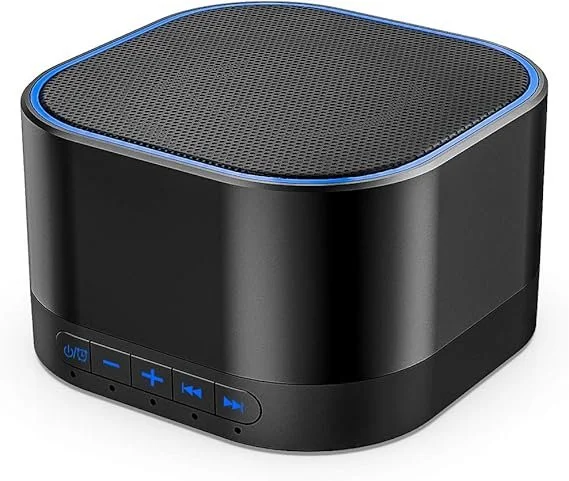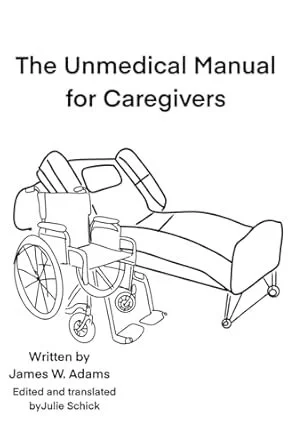How to Improve Sleep After a Traumatic Brain Injury: Proven Strategies That Work
Why Sleep Problems Are Common After a TBI
Getting quality rest after a traumatic brain injury (TBI) can feel like an uphill battle. Sleep is critical for brain recovery, yet many survivors struggle with insomnia, restlessness, or sleep apnea. As a caregiver, understanding why this happens is the first step toward helping your loved one rest more deeply.
The Brain’s Role in Sleep Regulation
A TBI can disrupt the areas of the brain that regulate sleep and wake cycles. This may lead to trouble falling asleep, difficulty staying asleep, or waking up still feeling tired.
How Fatigue and Insomnia Interact
Fatigue is already one of the most common challenges after TBI. The cruel twist? Poor sleep makes fatigue worse, and increased fatigue makes it harder to get restful sleep. Caregivers often notice this frustrating cycle.
The Link Between TBI and Sleep Apnea
Some survivors develop sleep apnea, a condition where breathing stops and starts during the night. This can leave them waking up gasping, snoring loudly, or feeling exhausted despite spending hours in bed. If left unchecked, it can affect not only energy but also overall health.
Common Signs of TBI-Related Sleep Issues
While every injury is different, some common signs that sleep may be a challenge include:
Struggling to fall asleep or stay asleep
Waking frequently during the night
Feeling restless or agitated in bed
Excessive daytime sleepiness
Fatigue that doesn’t improve with rest
Recognizing these patterns early can help caregivers put strategies in place before sleep problems spiral.
Sleep Hygiene: Building Healthy Habits
Improving sleep after TBI often starts with good sleep hygiene—the set of daily habits that promote healthy rest.
Consistent Bedtime and Wake-Up Routines
Encourage your loved one to go to bed and wake up at the same time each day, even on weekends. A consistent routine helps the brain’s internal clock reset.
Limiting Stimulants and Screen Time
Caffeine, nicotine, and alcohol can interfere with sleep. The glow from phones, TVs, and tablets can also keep the brain awake. Encourage winding down without screens an hour before bed.
Creating a Relaxing Pre-Sleep Routine
Simple rituals like listening to calm music, dimming lights, or gentle stretching can signal the body that it’s time for rest.
Optimizing the Sleep Environment
A supportive sleep environment can make a world of difference.
The Role of Darkness and Quiet
The brain rests best in a dark, quiet space. Consider blackout curtains and soundproofing solutions if outside light and noise are an issue.
Blackout Curtains and White Noise Machines
Light and sound disruptions are common triggers for poor sleep after TBI. Products like blackout curtains (👉 Click here) and white noise machines (👉 Click here) can help create a soothing sleep environment.
Comfortable Bedding and Weighted Blankets
Weighted blankets (👉 Click here) provide gentle, even pressure that can calm restlessness and encourage deeper sleep.
Safe and Caregiver-Friendly Sleep Aids
Not all sleep problems need medications—and in fact, many over-the-counter drugs can make TBI symptoms worse. Instead, caregivers can explore gentle, non-medication options first.
Non-Medication Strategies
Relaxation apps, calming teas, and aromatherapy diffusers (👉 Click here) may provide an extra layer of comfort.
When to Discuss Sleep Aids With a Provider
If natural strategies aren’t enough, it’s time to check in with a healthcare provider. Some prescription options may help, but these should always be discussed with a professional due to TBI-related sensitivities.
Special Considerations: Sleep Apnea and TBI
Recognizing the Warning Signs
If your loved one snores loudly, gasps during sleep, or seems unusually tired after a full night’s rest, sleep apnea may be a factor.
Practical Tools That May Help
While only a provider can diagnose and treat sleep apnea, certain caregiver-friendly items—like adjustable pillows or CPAP accessories—can help improve comfort and encourage better sleep positioning.
Caregiver Tips: Supporting Rest Without Overstepping
As a caregiver, small adjustments can make a big difference.
Recognize early signs of exhaustion and encourage rest before fatigue worsens.
Stick to consistent routines—even short naps should be limited to 30 minutes.
Make the bedroom a calming, device-free sanctuary.
Helpful Products for Better Sleep After TBI
Here are a few tools that caregivers often find helpful:
Sleep Trackers & Smartwatches (👉 Click here)When to Seek Professional Guidance
Sometimes, home strategies aren’t enough. If sleep problems are severe, worsening, or paired with new symptoms (like seizures, breathing changes, or sudden mood shifts), it’s time to connect with a healthcare provider.
Final Thoughts
Improving sleep after a TBI is less about one “quick fix” and more about creating the right environment, routines, and support system. With patience and consistency, caregivers can help their loved one rest better—giving both brain and body a stronger chance to heal.
For More Practical Caregiving Support
👉 If you found this article helpful, my book The Unmedical Manual for Caregivers covers these strategies (and more) in greater depth. Click here to grab your copy on Amazon today.
Disclaimer
I am not a medical professional. The information in this article is for general caregiver support and educational purposes only. It should not be taken as medical advice, diagnosis, or treatment. Always consult a qualified healthcare provider with questions about your loved one’s health or recovery.
For further Caregiver tips and information like this be sure to check out:




